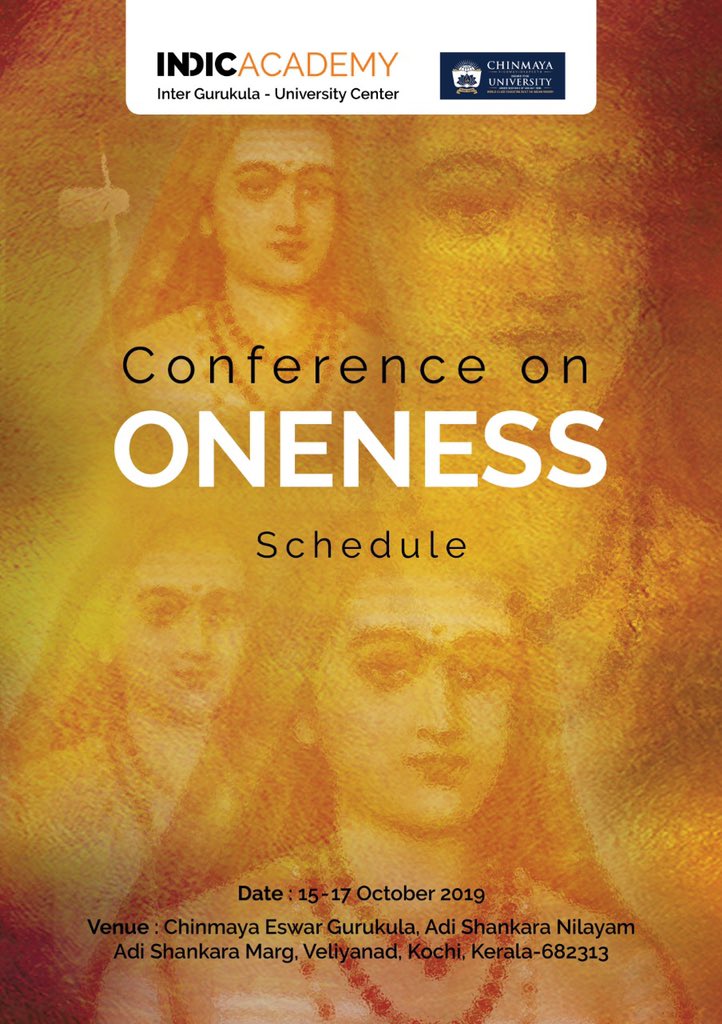
Continuing, Colonialism has been one of the most significant events in the last three hundred years or so for Indian culture. What exactly is immoral about this?
https://twitter.com/IndicaOrg/status/1448298648555556864
‘Colonial consciousness’, an important thesis of Balu’s research program, is a framework that denies access to our experience and makes us reproduce some sets of colonial ideas as though they describe our experience.
This process continues to the present times much after the colonizers have left. British colonialism introduced the framework about the superiority of the western culture as ‘objective’ or ‘scientific’ that was both presupposed and proved. The colonized accepted this.
Islamic colonization damaged the production and capacity of intellectuals to produce our ‘equivalents’ of western theories. These intellectuals turned simply to protect the existing traditions. The British colonized us before recuperation was possible.
How does colonial consciousness & accepting colonial claims happen? Balu says that this happens strongly by a process of secularization of many religious ideas. He shows that these ideas however are simply Christian theological ideas in a secular mantle as if these are ‘neutral’
Western intellectuals are blind to secularized theology because that is all they know. That is why when one draws upon the resources of the existing social sciences, one is drawing upon Christian theology.
he British framework secularizing the Christian framework recast Indian traditions in terms of religions; it described Hinduism with a ‘tyrannical priesthood’ as a variant of Catholic Christianity and Buddhism as a variant of Protestantism.
Thus, religion becomes corrupt when human beings add to God’s revelation. The Indian ‘reformers’, in the name of Protestant reformation (Brahmo Samaj for example), want to similarly ‘delete’ things from the ‘original revelation’ and ‘add’ new things.
Internalising many ‘axiomatic’ ideas of western culture like Law as the foundation of a civilised society & a nation is another example of colonial consciousness. For the British, practices of diff communities, no matter how old and venerated, should have their foundation in Law
However, Balu asks, what if Law is not the foundation of society but merely a tool to regulate reasonable interactions & find reasonable solutions to human conflicts? What if Law does not create a nation but instead groups become cultured precisely because of the colorful variety
Laws took on a status and force they never had in their culture, even if it was their ‘own’ laws. Indian intellectuals now started providing scriptural foundation to cultural practices.
If Indian intelligentsia believed this, it is not possible that people seek the intervention of the apparatuses of the State in human practices that carry the stamp of traditions (Sabarimala, Jalikattu, Pasubali as examples).
One example of colonial consciousness is the persistent idea that there are religions in India. The West did not provide a false or wrong description of the social and cultural reality in India.
Indeed, the puja, the Sahasranamams, the Purushasukta, our notions of dharma and adharma all exist says Balu. Only that these beliefs and practices even when taken together do not constitute either a religion or a unified phenomenon termed as ‘Hinduism’.
In this sense, Hinduism as a ‘religion’ (a sociological and metaphysical impossibility as he discusses elsewhere in detail) has no existence outside the colonial experiences of India.
They could not imagine that cultures could exist without religions and thus constructed Hinduism (with offshoots like Buddhism, Sikhism, Jainism). Indian traditions had nothing like One Book, One Temple, One Messenger, and even the universal concept of God
Problematically, intellectuals are transforming some of the multiple Indian traditions into a single ‘religion’ called ‘Hinduism’. While the term ‘Hindu’ might be convenient, the danger is in trying to develop ‘doctrines’, so that we could identify people following ‘Hinduism’.
Traditions are not religions or philosophies. They are what they are- traditions. To an ill-formed question, ‘why practice a tradition?’ (why Bindi; why Linga puja; why bangles), the simple answer is that there is no ‘special’ reason to continue a traditional practice.
#Thread to be continued...
Read the full review here: pragyata.com/what-does-it-m…
Thanks @pingaligopal for the review & @Pragyata_ for publishing it
@IndicaBooks @AbhinavAgarwal
#1000ReviewersClub
Read the full review here: pragyata.com/what-does-it-m…
Thanks @pingaligopal for the review & @Pragyata_ for publishing it
@IndicaBooks @AbhinavAgarwal
#1000ReviewersClub
• • •
Missing some Tweet in this thread? You can try to
force a refresh







